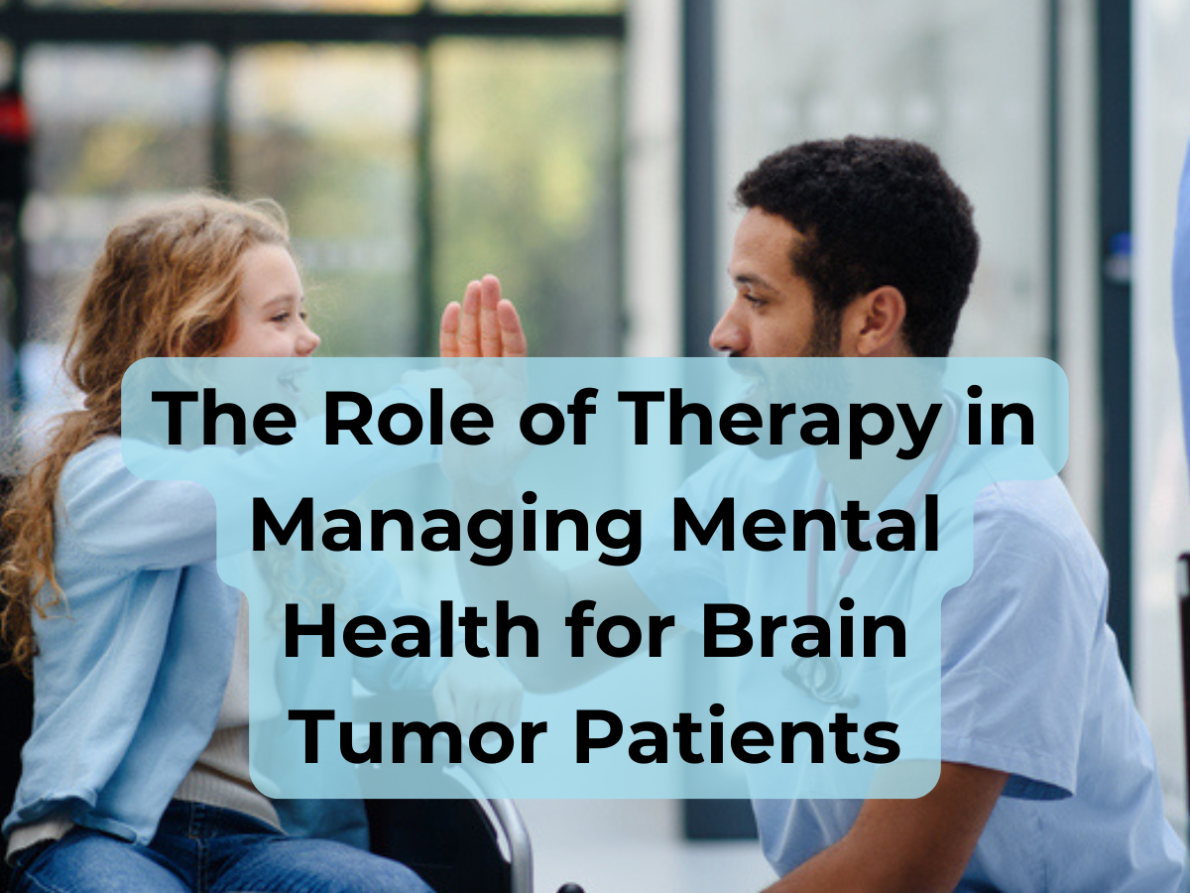The Role of Therapy in Managing Mental Health for Brain Tumor Patients

A brain tumor diagnosis brings a wave of emotions. Fear, sadness, and uncertainty can make everyday life feel overwhelming. Therapy can be a lifeline, offering support and tools to help patients feel more in control. At Duke’s Preston Robert Tisch Brain Tumor Center, we focus on mental health as a key part of care, giving patients the resources they need to navigate their journey.
How Therapy Helps Brain Tumor Patients
Therapy helps patients work through emotions, manage stress, and build coping strategies. It’s not just about talking—it’s about learning skills that make life a little easier. Here are some approaches that can make a difference:
1. Cognitive-Behavioral Therapy (CBT)
CBT helps patients recognize and change negative thought patterns. It’s practical and action-focused, helping with:
- Reducing anxiety and depression.
- Finding better ways to handle stress.
- Building resilience through small, manageable steps.
CBT might involve keeping a journal, spotting triggers, or practicing positive self-talk. These techniques give patients tools to feel more grounded and in control.
2. Art Therapy
Art therapy gives patients a way to express emotions without words. Drawing, painting, or sculpting can help process feelings that are hard to talk about. It’s especially helpful for:
- Reducing anxiety.
- Providing a creative outlet during difficult times.
The focus isn’t on creating something perfect. It’s about the process and the relief it can bring.
3. Group Therapy
Group therapy connects patients with others who understand what they’re going through. Sharing stories and advice in a supportive environment can:
- Reduce feelings of isolation
- Offer new coping ideas
- Build a sense of connection
Group sessions can also include couples, helping partners face challenges together. This approach strengthens relationships and builds mutual understanding.
4. EMDR Therapy
Eye Movement Desensitization and Reprocessing (EMDR) is a therapy designed to help with trauma. For patients feeling overwhelmed, EMDR can:
- Ease distressing memories.
- Reduce stress tied to treatment or diagnosis.
- Foster a sense of calm and closure.
EMDR uses guided eye movements to help the brain reframe painful experiences. It’s a fantastic method for finding emotional balance.
Therapy at Duke’s Preston Robert Tisch Brain Tumor Center
At Duke, mental health care is a top priority. Our team works closely with patients to design personalized plans that address emotional needs. From individual sessions to group support, we offer options that fit each patient’s situation.
Learn more about our mental health services through the Adult Neuro-Oncology Program.

Why Therapy Matters
Therapy isn’t just about tackling problems. It’s about improving quality of life. Patients who engage in therapy often feel:
- More confident managing challenges.
- Better equipped to communicate with loved ones.
- Less burdened by anxiety or sadness.
Therapy creates a safe space to explore feelings and learn new ways to handle stress. It’s one of the most valuable tools in a patient’s journey.
Discover Comprehensive Care at Duke
A brain tumor diagnosis can feel like too much to handle, but you don’t have to face it alone. At Duke’s Preston Robert Tisch Brain Tumor Center, we’re here to help.
Schedule an appointment today to learn how we can support your mental health and overall well-being. Our compassionate team of doctors is ready to walk with you every step of the way.
Explore our blog to learn more:
- The Impact of Brain Tumors on Mental Health
- How to Care for Someone with Brain Cancer
- How Does Brain Cancer Affect Everyday Life?
FAQ: Therapy for Brain Tumor Patients
How to cope with someone with brain cancer?
Be there to listen and offer support. Help with daily tasks, encourage therapy, and remind them they’re not alone. Small acts of kindness can make a big difference.
Which therapy is best for a brain tumor?
It depends on the person. CBT, art therapy, group therapy, and EMDR are all effective options for managing mental health challenges.
How to take care of brain tumor patients?
Help with their emotional and physical needs. Encourage open conversations, support daily routines, and connect them with therapy to address mental health.
Can you function normally with a brain tumor? Many patients can maintain normal routines with the right care and support. Therapy can help manage emotional and cognitive challenges to improve daily life.
What should brain tumor patients avoid? Avoid unnecessary stress and activities that could overexert the body or mind. Always check with your care team about lifestyle changes.